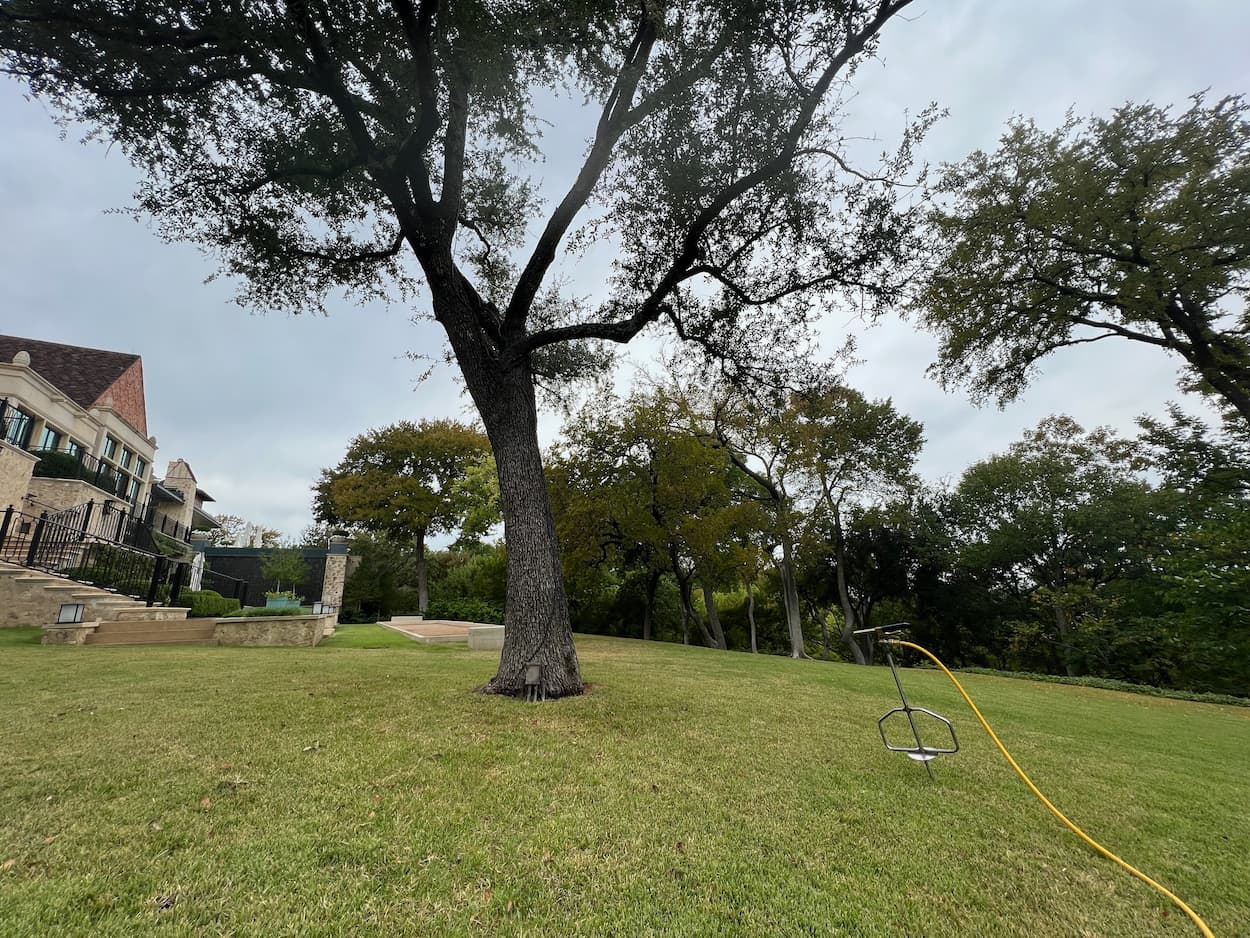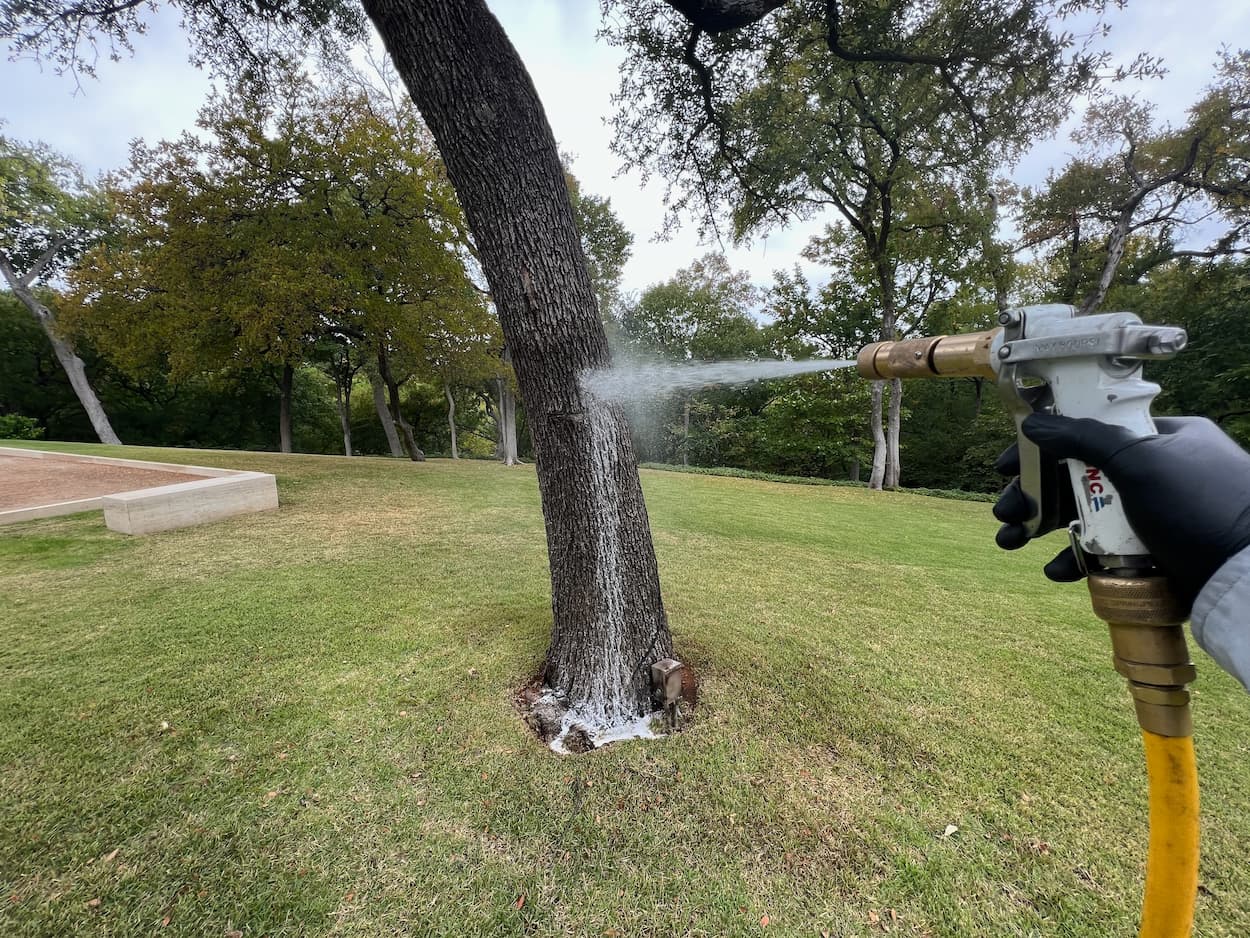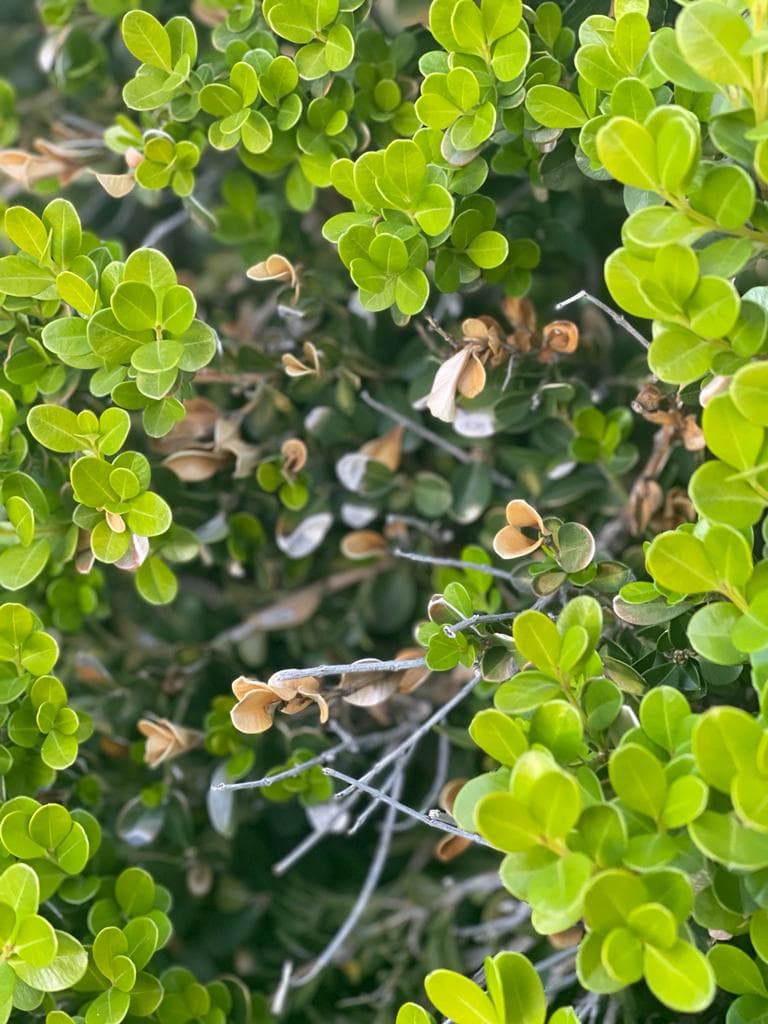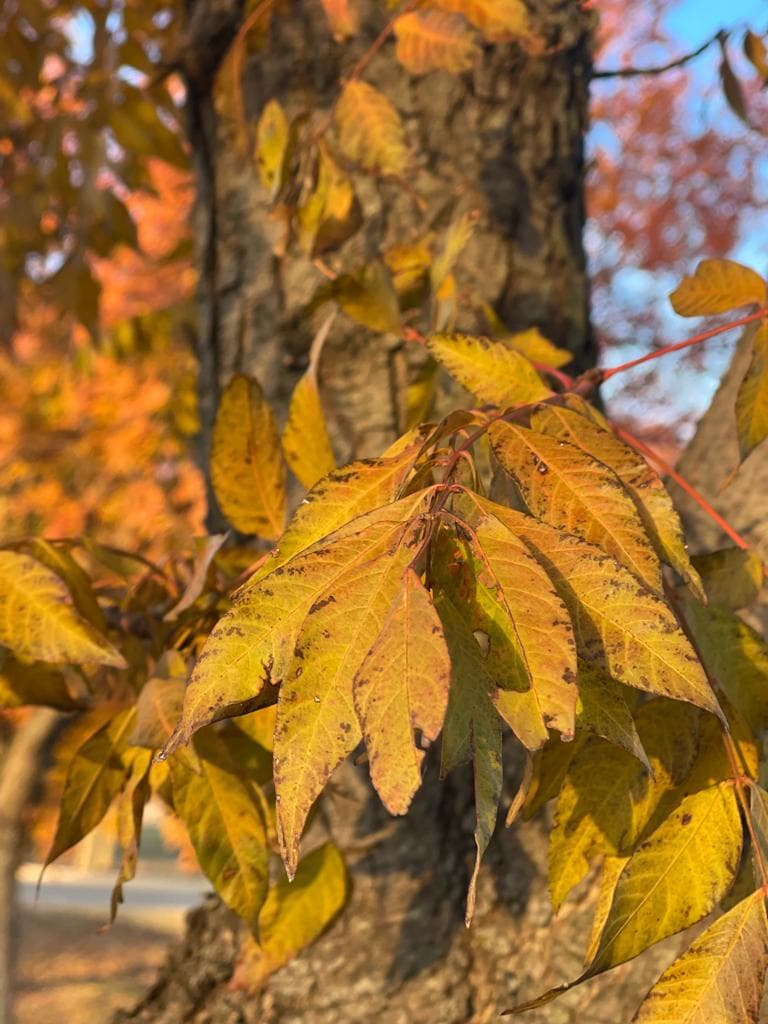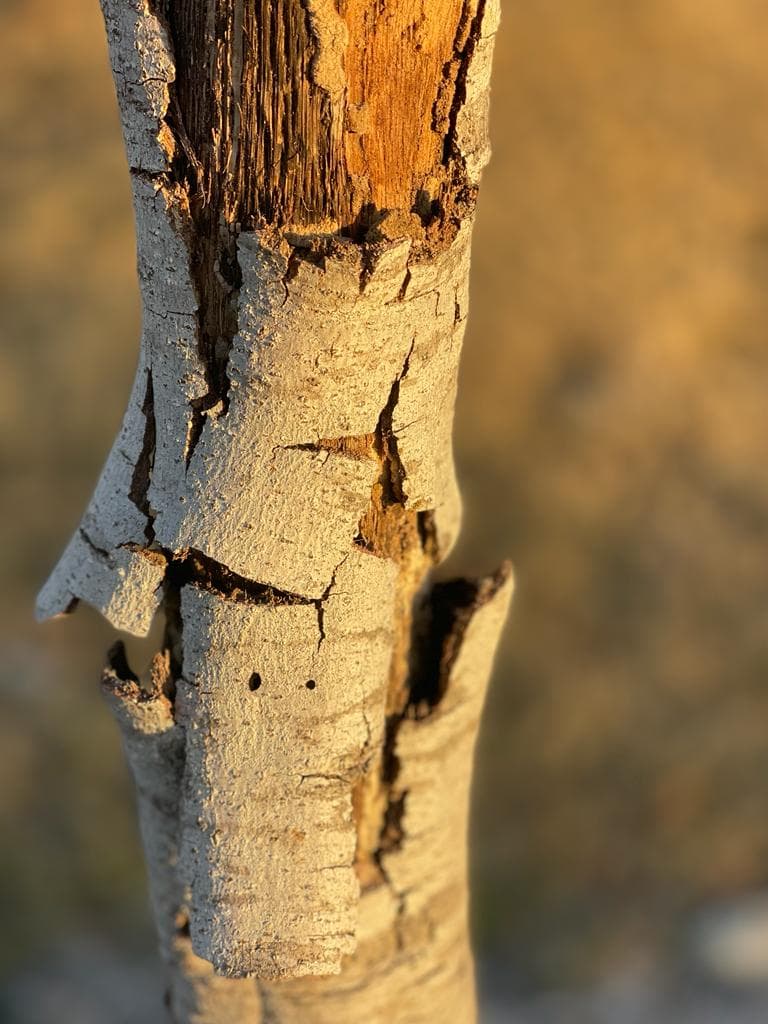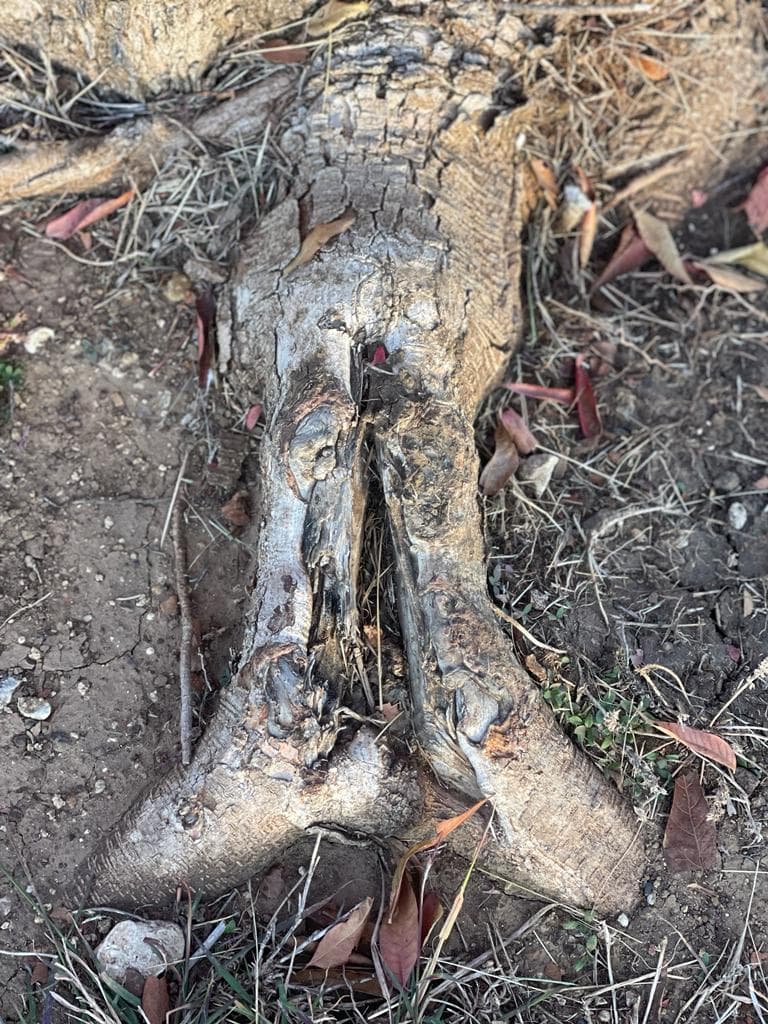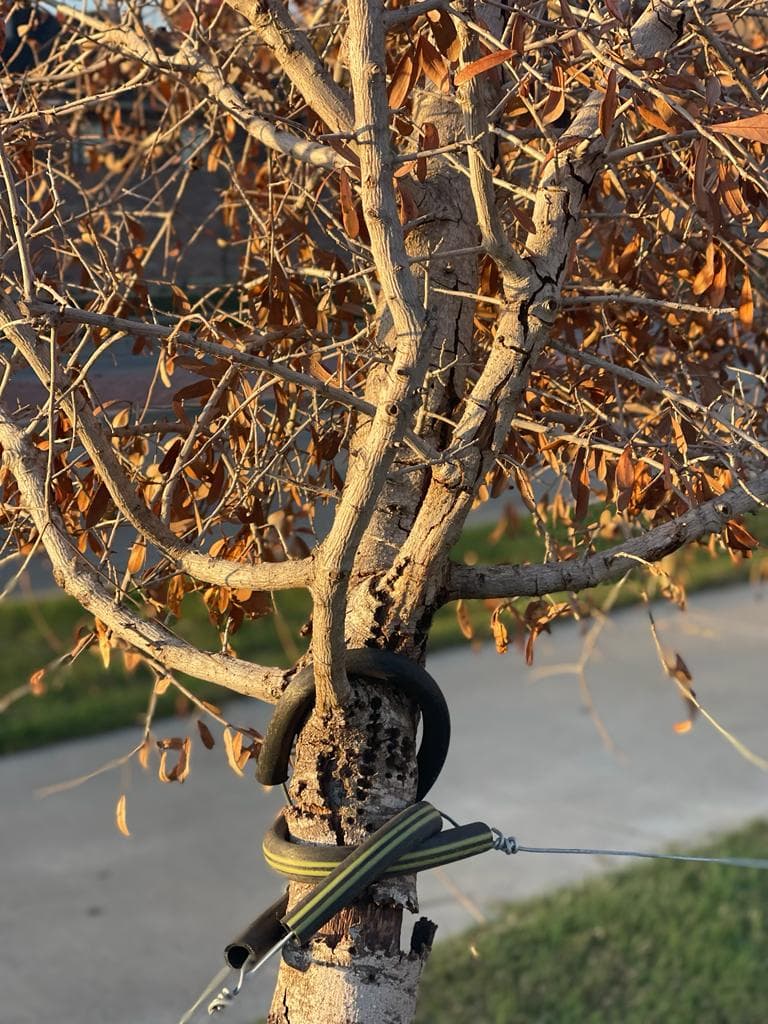Texas Shrubs & Tree Health Care Experts
Caring For Texas Shrubs & Trees Since 1990 Get A Free QuoteCall (817) 880-6130Tree & Shrub Pest Treatment Services in Bennett, TX
Our ISA Certified Arborist Can Help Treat Your Trees and Shrubs From Pests in Bennett, TX.
Arborist USA provides Tree & Shrub Pest Treatment Services in Bennett, Texas, and the surrounding areas.
Nestled within the scenic expanse of Texas, Bennett is renowned for its breathtaking collection of trees and shrubs. The town’s robust tree and shrub pest treatment strategy is a testament to their commitment to preserving and maintaining this rich natural diversity. In managing its pest control effectively and responsibly, Bennett underlines the imperative of forward-thinking and sustainable pest management. By taking the lead in this critical ecological initiative, Bennett hopes to guide communities everywhere towards methodologies that respect and uphold natural biodiversity.
If you are in need of Tree & Shrub Pest Treatment Services in Bennett, TX, please get in touch with Arborist USA today by calling us at (817) 880-6130, your Tree & Shrub Disease Specialist.
Signs of a Sick Tree or Sick Shrub
- Dead Branches
- Yellowing Leaves
- Fungi or Decay
- Bark Falling Off
- Discolored or Rusted Leaves
- Dying Tree or Shrub
- Leaf Discoloration
- Root or Insect Damage
- Leaves look like they’re being eaten
- Bark is Peeling
- Holes in leaves
- Holes on Bark or Branches
- Stunted Growth
- Canopy Dieback
- Bark Abnormalities
- Wilting
Tree & Shrub Helpful Tips
1. Common Pests:
Trees and shrubs in Bennett frequently fall victim to pests such as beetles, aphids, scale insects, borers, and caterpillars. Initiating effective treatments as soon as these pests are identified can help mitigate the risk of spread and irreversible damage.2. Quick Identification:
To nip potential pest issues in the bud, Bennett communities maintain an emphasis on early detection. Swift identification allows immediate action, reducing the risk of pest populations inflicting widespread damage upon the town’s natural landscape.3. Organic Pest Control:
A crucial aspect of Bennett’s approach is rooted firmly in organic pest control methods. Encouraging the proliferation of insects and organisms beneficial to the ecosystem allows these natural inhabitants to regulate destructive pests. Not only does this reduce reliance on chemical treatments, it also helps to maintain ecological equilibrium.4. Systemic Insecticides:
In instances of larger infestations, Bennett doesn’t shy away from using systemic insecticides. Yet, this approach is tempered with care, their usage strictly controlled to minimize any adverse impact on the surrounding environment.5. Biological Control:
Bennett also enthusiastically employs biological control methods in its pest treatment strategy. Encamping natural predators in the ecosystem creates a self-sustaining pest management system – an ecologically sound approach to pest control.6. Preventive Measures:
Alongside these techniques, preventive measures are woven into Bennett’s pest treatment strategy. Regular plant health checks, correct pruning methods, and smart watering techniques contribute to creating an environment less susceptible to pest invasions.7. Treatment Resistance:
Understanding the adaptability of pests, Bennett regularly changes its treatment methods. This prevents pests from developing resistance to a single treatment type, ensuring that the effectiveness of their pest control techniques remains intact.8. Seeking an Arborist:
Collaborating with certified arborists and pest control experts invigorates Bennett’s pest management strategy, enhancing professional knowledge and expert advice on controlling pests and promoting plant health.
If you’re concerned or have any further questions about our Tree & Shrub Pest Treatment Services in Bennett, TX, or surrounding areas in North Texas, please call us at (817) 880-6130.
Tree & Shrub Pests
Listed below are common Tree & Shrub Pests found in Texas.
Aphids
A white soft body insect that creates a sticky "honey dew" structure on limbs or leaves, blocking nutrients.
Bagworms
Bagworms lay eggs that create small cone-shaped structures less than three inches in length.
Beetles
An invasive wood borer that is subject in all wood tissue that causes severe decline in trees health.
Gypsy Moth
A larva that boars into leaf structure that cause lesser of a foliation and decline in overall leaf structure.
Oak Gall
A growth deformity known as a "gall" commonly occur on oak trees subject to branches and other structures.
Termites
Termites, wood-destroying insect, eats away at all wood tissue, damaging the structures of the trees.
Twig Girdlers
Being a member of the long-horned beetle family, these girdlers are known to eat leaf and other tree areas.
Webworms
These caterpillars spin white webbing bag nests in tree branches and eat your tree foliage (leaves).
Certifications

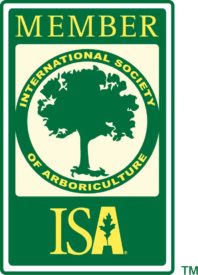

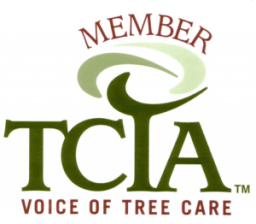
Our Reviews
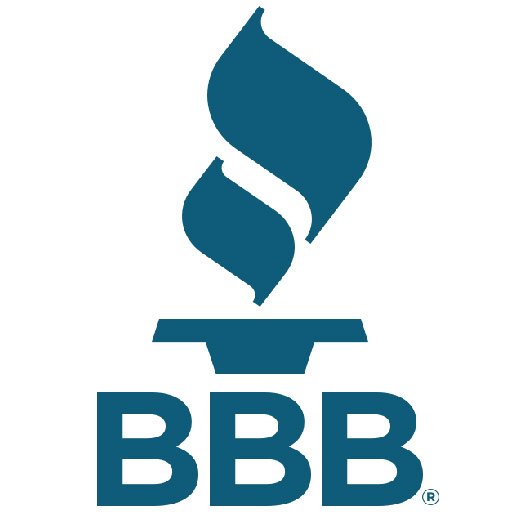
A+ BBB Rating based on 31 BBB Reviews
4.8/5.0 based on 83 Top Rated Local Reviews
4.6/5.0 based on 36 Facebook Reviews
4.0/5.0 based on 4 Trust Pilot Reviews

4.9/5.0 based on 90 Google Reviews
4.5/5.0 based on 13 Yelp Reviews
29 Recommendations on Nextdoor
Total Reviews: 286 ![]() Real Customer Reviews
Real Customer Reviews

